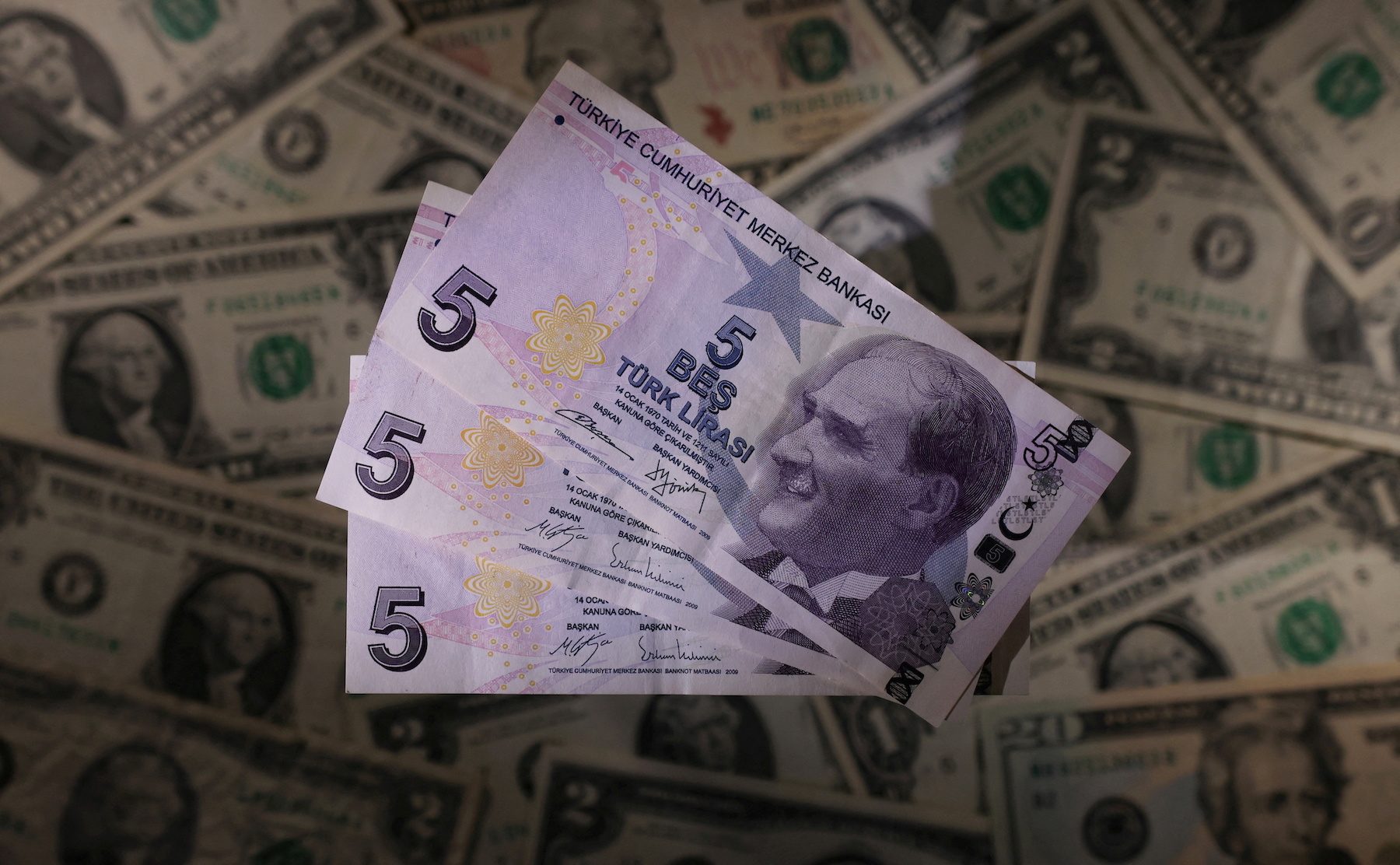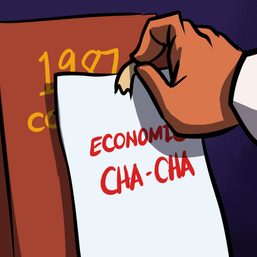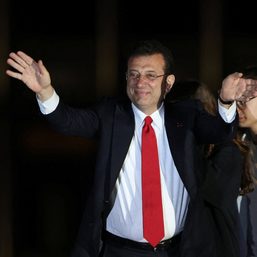SUMMARY
This is AI generated summarization, which may have errors. For context, always refer to the full article.

ISTANBUL, Turkey – Turkey’s lira crashed as much as 7% to a record near 15 to the dollar on Monday, December 13, before whip-sawing back after the central bank intervened, gripped by worries over President Tayyip Erdogan’s risky new economic policy and prospects of another rate cut.
The central bank said it entered the market to sell dollars for the fourth time in two weeks, triggering the rebound after the currency had touched 14.99 – where it was worth just half its value at the beginning of the year.
The bank moved to keep the lira below 14 last week but abandoned that level on Monday. Depreciation fuels inflation in the big emerging market economy that depends heavily on imports, and which is rattled after 400 basis points of interest rate cuts since September.
The interventions are an additional risk for a central bank that is not only easing policy in the face of rising inflation, but that also has had depleted foreign reserves.
According to calculations of bankers analyzing official data, the central bank sold $1.5 billion to $2 billion in dollars on Monday alone, after sales worth $2.5 billion in the first three efforts.
By 1547 GMT, the lira had trimmed losses in thin market trading to 13.79 – its strongest point on the day, but still down 31% since the beginning of last month.
“The central bank has continued to intervene to soften the blow but this is akin to putting a band-aid on a gaping wound,” said Win Thin, global head of currency strategy at Brown Brothers Harriman.
In response to the market turmoil – which has upended Turks’ economic lives – Erdogan held talks with Central Bank Governor Sahap Kavcioglu, Finance Minister Nureddin Nebati, and the heads of state banks in Istanbul, sources told Reuters.
Any decisions from the meeting were not clear and no announcements had been made.
Outlook revised to negative
The central bank, under pressure from Erdogan, is expected to cut its policy rate by 100 basis points to 14% this week, a Reuters poll showed on Friday, December 10, despite inflation soaring to 21.3% last month.
Kavcioglu has said boosting the current account, which showed a surplus of $3.156 billion in October, was key to price and lira stability. But many analysts are skeptical.
“We doubt that either intervention or a balanced current account will be effective in stabilizing the currency,” Morgan Stanley said in a note.
The central bank’s relatively thin reserves means interventions could be counterproductive, it added.
Data last week showed the central bank’s net international reserves dipping to $22.47 billion. Reserves are sharply negative once outstanding swap transactions of $45.571 billion are deducted.
Turkey’s sovereign dollar bonds dropped, with the 2034 issue down 0.8 cents, according to Tradeweb data.
The lira crash has sharply eroded Turks’ earnings, fueling poverty and leading to lines of people waiting to buy cheap bread as the price of goods surges. Lawmakers have brawled amid rising tensions in parliament as the opposition slammed government handling of the economy.
Late on Friday, ratings agency S&P affirmed Turkey’s long-term foreign currency rating at “B+” and revised its outlook to negative on uncertain policy and rising external risks.
Turkey’s 5-year credit default swaps nudged 1 basis point higher to a one-week high of 503 basis points, according to IHS Markit data.
Erdogan has repeatedly advocated for rate cuts as he promotes a new economic plan prioritizing economic growth, credit, production, and exports, despite widespread criticism of the policy from economists and opposition politicians.
“There is an element of concern about what the economic plan is, and how closely aligned it would be to engaging with the private sector. There is a lack of clarity around that,” said Khush Choksy, the US Chamber’s senior vice president for international development and for the Middle East and Turkey.
“US companies do have questions about how Turkey will handle the current short-term crisis and get on to the path of long-term growth that it enjoyed for a long period,” told Reuters. – Rappler.com
Add a comment
How does this make you feel?










There are no comments yet. Add your comment to start the conversation.